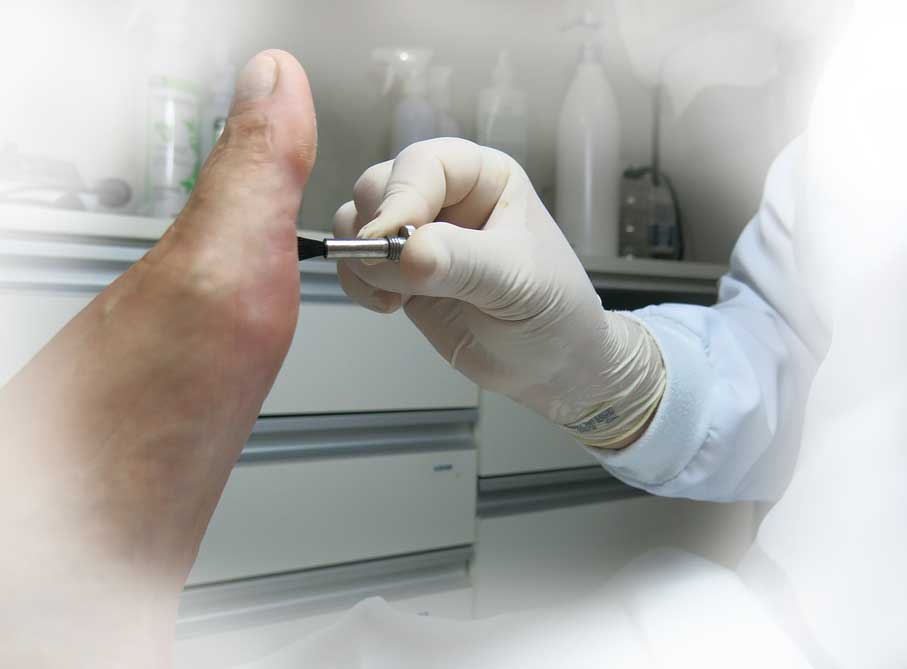Diabetic Foot Assessments & Care

What is Diabetes and how does it affect the feet?
Diabetes is a condition in which the amount of glucose (sugar) in the blood is too high because the body is unable to use it properly. This is because the body is unable to produce enough insulin which is how the body converts glucose into energy.
Diabetes is classified into two categories. Type One is an auto immune disease where the body’s immune system attacks the insulin producing cells in the pancreas. As a result, people with type 1 diabetes cannot produce insulin and rely on insulin injections to survive. Type Two is the most common type of diabetes and is usually a result of hereditary factors and lifestyle risk factors including poor diet, insufficient physical activity and being over weight.
Diabetes affects the smallest blood vessels in the body which are the ones that feed the nerve endings. If Diabetes is not managed properly, this can lead to nerve damage and loss of feeling in the feet. Sensation and experience of pain is the body’s warning system to prevent damage to the tissues. If loss of sensation, or neuropathy occurs, this can result in injury, tissue breakdown (also known as ulceration) and infection which may result in amputation in severe cases.
A yearly check up by your podiatrist will help to detect any changes early, before they become a serious problem. Your podiatrist will examine your circulation by measuring foot pulses. They will also examine your nerve sensation by testing pressure sensitivity, vibration and reflexes and other tests that may be considered necessary.
To prevent problems you should do the following
- Inspect your feet every day and check between your toes for any cracks or breaks in the skin. Treat them as soon as possible or seek assistance from your podiatrist if the area is not healing.
- Where possible wear lace up shoes which are deep and broad enough, especially at the toes for your foot.
- Check the inside of your shoes for rough edges, shake them out before use to make sure there is nothing loose inside.
As a general health guide
- Maintain recommended blood sugar levels
- Don’t smoke
- Exercise regularly
- Avoid walking barefoot
- Keep your feet clean
- Wear properly fitting socks
- Wear well fitting shoes
- Cut and file your toenails carefully and regularly
- Have corns, calluses and other foot problems treated by a podiatrist
- Seek your podiatrist’s advice if you have any foot concerns sooner rather than later
- Have a diabetic foot screen with your podiatrist.
Remember
With nerve damage or altered sensation you may experience numbness in your feet. Cuts, blisters, ingrown toenails and corns may often go unnoticed. Reduced blood supply and poor circulation can slow down the healing process.
PROTECT your feet from injury.
INSPECT your feet or get help from someone to inspect your feet every day.
ASSESS Have your feet assessed every year by your podiatrist.
Contact us
For emergencies call 000 or visit your nearest hospital
